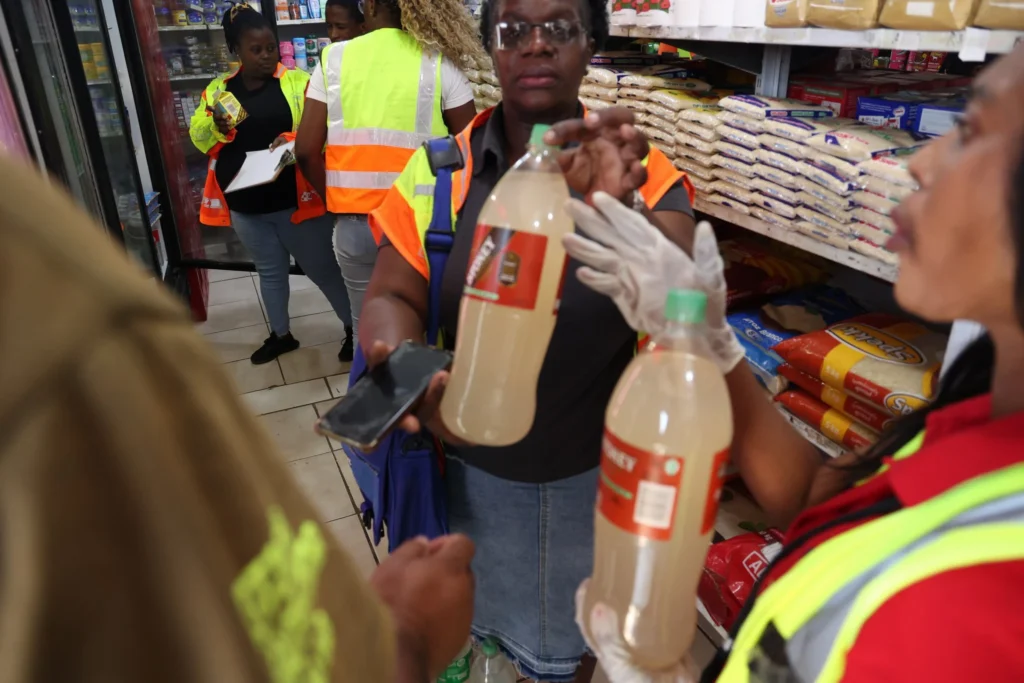Mzansi Cracks Down on Spaza Shops Following Child Deaths
In response to a nationwide food safety crisis that has claimed the lives of 22 children, President Cyril Ramaphosa announced sweeping measures Friday to shut down implicated spaza shops and strengthen food safety regulations across the country.
The immediate closures come after 890 reported cases of food-borne illnesses, with five provinces—Gauteng, KwaZulu-Natal, Limpopo, Free State, and Mpumalanga—being the hardest hit.
The crisis gained national attention last month when six children, the youngest being six years old, died in Soweto’s Naledi township.
“Few words can adequately convey the sadness and pain of the nation,” Ramaphosa said during an address at the Union Buildings in Tshwane. “Our thoughts and prayers are with their families as they go through the pain and the anguish of losing their children.”
Three-Pronged Approach
The government’s response centers on three critical interventions:
- Removing hazardous pesticides from streets
- Protecting children from exposure to harmful substances
- Preventing future outbreaks
Scientific tests conducted by the National Institute for Communicable Diseases linked the Naledi deaths to Terbufos, a highly hazardous agricultural pesticide.
Immediate Actions
The president outlined several immediate measures:
- All spaza shops must register with their municipalities within 21 days or face closure
- Nationwide inspections of food handling facilities, starting with Gauteng and KwaZulu-Natal
- Enhanced scrutiny of Terbufos manufacturers and distributors
- Establishment of joint operational and intelligence structures at national and provincial levels
Support for Small Businesses
To help legitimate small businesses comply with new regulations, the government announced:
- A R500 million joint fund to support township and rural businesses
- Funding for refurbishment and technical training
- Support for regulatory compliance and capacity building
Enhanced Monitoring Systems
The government is implementing new monitoring mechanisms:
- Mandatory reporting of all deaths of patients 12 years and below
- Electronic medical certification system for immediate death cause reporting
- Strengthened Biosecurity Hub controls at ports of entry
- Review of legislation regarding agricultural pesticides
Law Enforcement Response
A multidisciplinary team has been activated, including:
- South African Police Service detectives
- Health officials
- Environmental inspectors
- Department of Agriculture officials
- National Consumer Commission representatives
The president emphasized that law enforcement agencies will investigate, arrest, and prosecute offenders, working closely with registered manufacturers and suppliers.
Municipal Requirements
Local municipalities must:
- Address rat infestations
- Clean cities and towns
- Remove waste
- Ensure landfill sites comply with the National Environmental Management Waste Act
A Ministerial Health Advisory Committee comprising toxicologists, pediatricians, chemical pathologists, epidemiologists, and forensic pathologists will develop medium- and long-term prevention measures.
The implementation of these measures marks one of the most comprehensive food safety responses in South Africa’s recent history, as the government works to prevent further tragedies and restore public confidence in food safety.


Pingback: Ekurhuleni Residents React to Spaza Shop Registrations - Mapepeza News